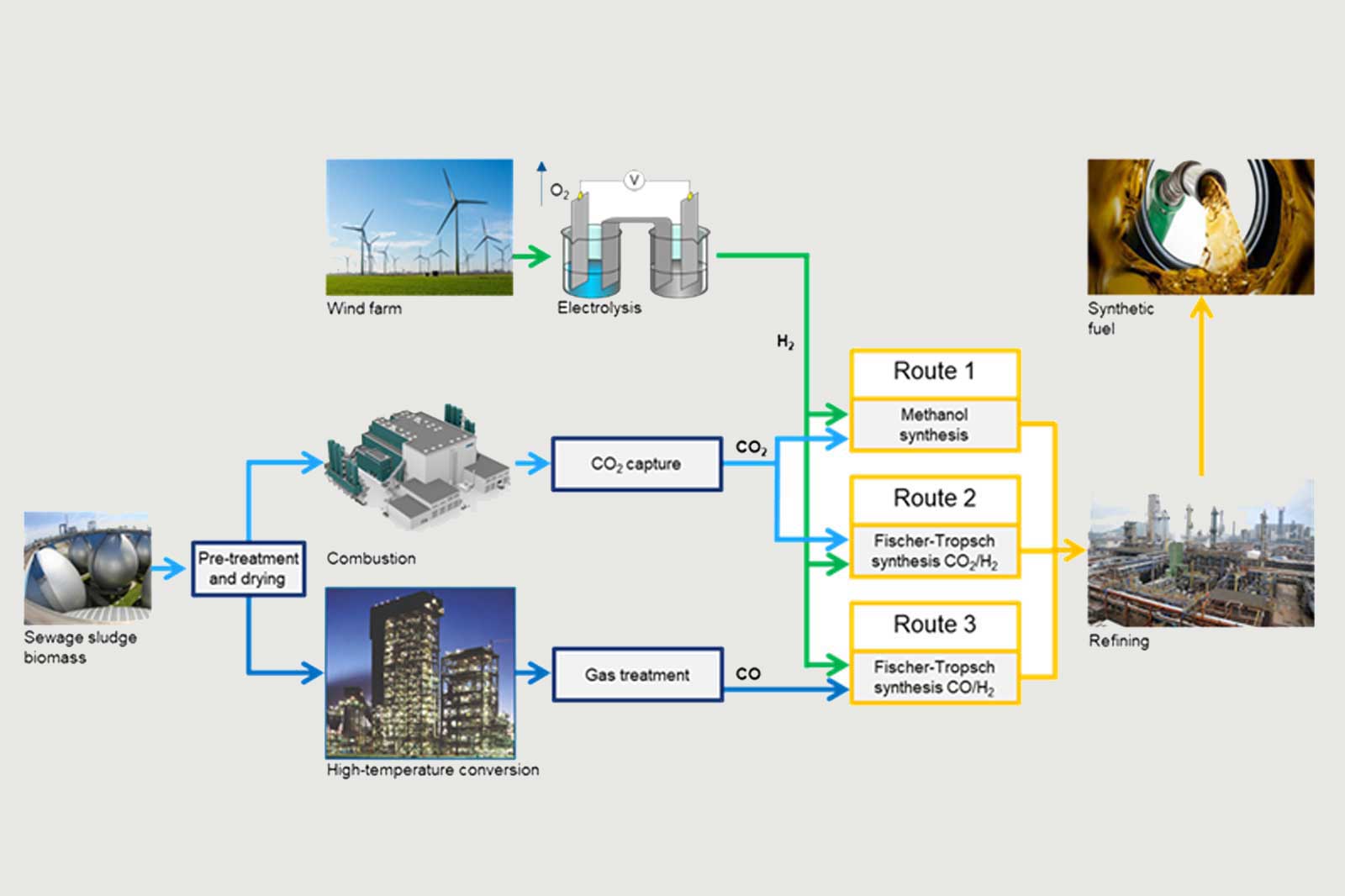


The implementation of the coal phaseout and the plan to move away from using fossil fuels will bring about far-reaching changes in the coming decades that will affect all areas of daily life, the economy and business sectors (energy, transport, industry, trade/buildings) as well as infrastructure and land use. In order to avoid structural disruptions and social and demographic upheavals for people as far as possible, value chains and professional industrial jobs must be maintained locally as far as possible and new ones developed.
This applies in particular to the Rhenish lignite mining area and the Ruhr region. The socially desired change in the supply of energy and raw materials can only be achieved sustainably through a holistic approach that encompasses all sectors. In addition to the expansion of renewable energy sources, there is therefore a need to store large quantities of energy in the short and long term and to transport it over long distances in the future energy and raw materials supply system based on fluctuating electricity generation using photovoltaics and wind power.
Together with our partners BP Europe, Forschungszentrum Jülich and RWE Renewables Europe & Australia, we have therefore investigated and confirmed the fundamental feasibility of a demonstration plant for the production of regenerative synthetic crude fuels (methanol, Fischer-Tropsch products) based on sewage sludge (and possibly other biomass) and regenerative H2 at an RWE site in North Rhine-Westphalia (NRW). In addition, their further processing and utilisation on an industrial scale in the Ruhr region will be examined as part of a concept study funded by the state of NRW. The approach aims to demonstrate the development and utilisation of green hydrogen and biogenic CO2 for the production of climate-neutral fuels (e.g. aircraft fuel) and to use biomass for this purpose. It has been determined that the project should be able to produce at least 10,000 tonnes of synthetic products (eFuel, eChemicals) each year. The site investigation carried out as part of the study identified Knapsacker Hügel as a very suitable location for project development and the construction of a demonstration plant by 2030, as, in addition to the existing infrastructure, a long-term biogenic CO2 source (sewage sludge mono-incineration plants) of the desired size can be utilised here by the end of the decade.
Results of the feasibility study and next steps
RWE can and wants to be a major player in key parts of the value chain - from the generation of renewable electricity, the production of H2, the supply of CO2, and the operator of production sites through to the trading of products.
However, the feasibility study carried out in 2023 very clearly confirmed that a demonstration plant cannot be realised economically in the current market and regulatory environment, as the calculated production costs of biofuels are significantly higher than the costs of mineral oil-based fuels. In order to ensure the economic viability of producing synthetic fuels, which are not an alternative for achieving the ambitious climate protection targets in long-distance transport (aviation, maritime), the regulatory environment for industrial Power-to-X projects must therefore be further improved and suitable economic incentives provided, for example through start-up funding.
Potential partnerships in plant construction, as well as on the product producer and consumer side, are currently being examined with a view to pressing ahead with the technical and commercial development of a specific demonstration project.
Project implementation
Hydrogen sources include electrolyser systems fed with renewable electricity and renewable H2 drawn from a hydrogen pipeline. For the carbon source, the choice is between a sewage sludge mono-combustion system, an energy-from-waste plant or a system for high-temperature conversion. Various methods are being investigated for manufacturing a raw product that will subsequently be processed using existing refinery infrastructure. The renewable electricity must be obtained from one of RWE’s own wind farms in the Rhenish region and/or in northern Germany.
A feasibility study estimates the investment, operating and prime costs for an industrial-scale demonstration project. The aim is also to calculate the carbon footprint for the renewable synthetic fuel and, by estimating the potential for usable CO2 point sources in NRW (e.g. sewage sludge, energy-from-waste plants), renewables and usable H2 infrastructure, to illustrate the socio-economic and industrial policy contribution to be made to NRW and the broader mining region by producing synthetic fuels.
The study of concepts and potentials performed here is intended to assist with preparation for the actual implementation project to construct and operate the demonstration plant. Depending on the overall regulatory conditions, a start could then be made on developing the actual project subject to approval of suitable multi-sector structural aid and climate protection measures.
The concept study examines a range of options for manufacturing raw products from sewage sludge and renewable hydrogen and refining them into sustainable aviation fuel.


